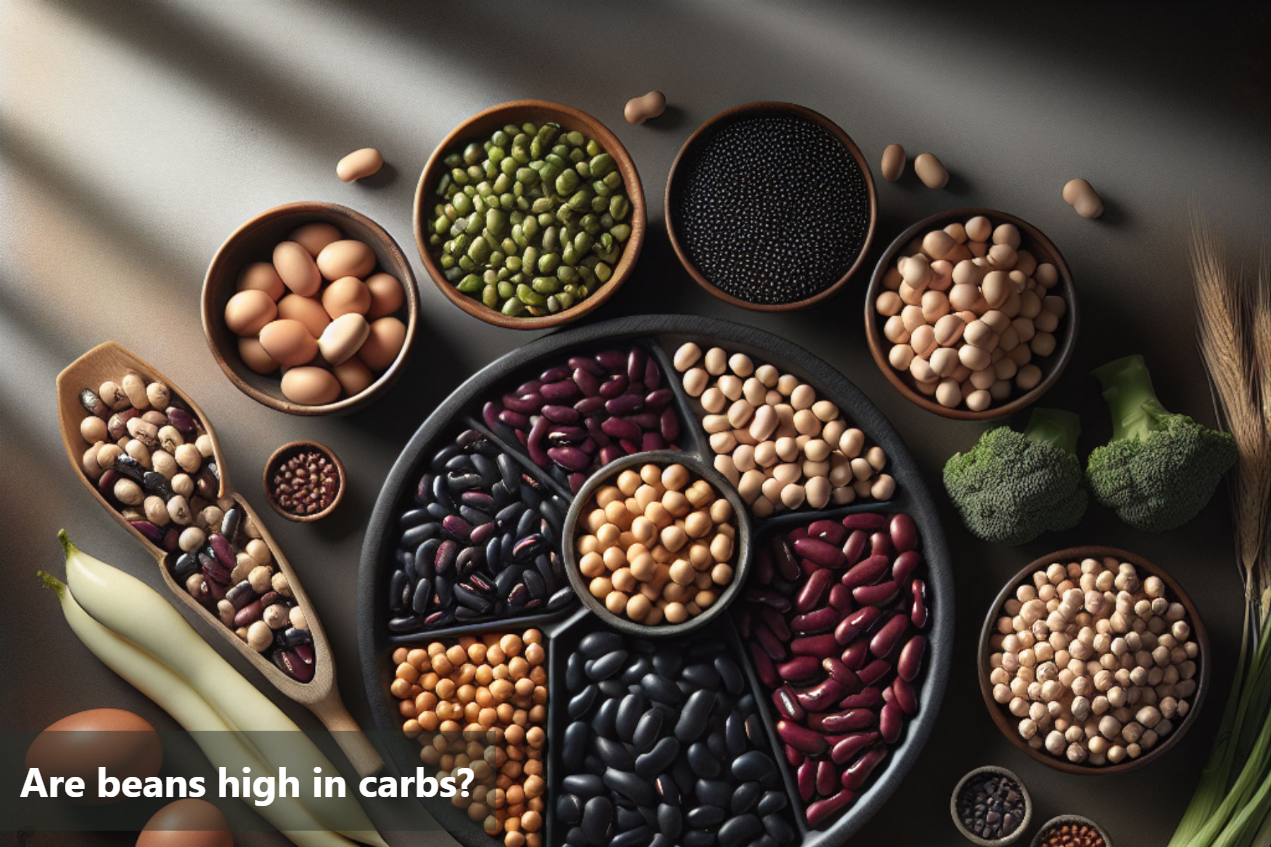
Are beans high in carbs?
Carbohydrates are a vital macronutrient that provides energy to our bodies, playing a crucial role in a balanced diet. They are found in various foods and come in different forms. Beans, often underrated, serve as an excellent source of carbohydrates along with other essential nutrients.
When we talk about carbohydrates, we are referring to sugars, fibres, and starches that our body breaks down to fuel our daily activities. They are necessary for optimal bodily functions and should be part of a well-rounded diet. Beans, such as black beans, kidney beans, and chickpeas, are not only rich in carbohydrates but also high in protein, fibre, and various vitamins and minerals.
Incorporating beans into your meals can provide a steady release of energy, keeping you full and satisfied. Despite their carbohydrate content, beans are considered a healthy option due to their nutrient profile and benefits for overall health. Whether you are following a low-carb diet or not, beans can be a valuable addition to your meals to support your nutritional needs.

Types of Beans and Their Carb Content
This table provides the carb counts for some of the most common types of beans per 1/2-cup (60–90-gram) serving, cooked:
Beans |
Total carbs |
Net carbs |
|---|---|---|
Black beans |
20 grams |
12 grams |
Navy beans |
24 grams |
14 grams |
Kidney beans |
20 grams |
13 grams |
Black soybeans |
8 grams |
2 grams |
Green beans |
4 grams |
2 grams |
Chickpeas |
25 grams |
18 grams |
Lima beans |
19 grams |
12 grams |
Pinto beans |
23 grams |
15 grams |
Lentils |
18 grams |
11 grams |
Black-eyed peas |
21 grams |
15 grams |
Great Northern beans |
19 grams |
13 grams |
Comparing Beans to Other Carbohydrate Sources
- Beans are a versatile and nutritious source of carbohydrates that offer numerous health benefits. When looking at the carb content of beans compared to other common carbohydrate sources like grains and starchy vegetables, beans often stand out for their unique nutritional profile.
- In terms of carb content, beans generally contain a moderate amount of carbohydrates compared to grains and starchy vegetables.
- While beans may have a slightly higher carb content than some non-starchy vegetables, they are still considered a valuable option for those following a low-carb or keto diet.
- The high fibre content in beans can help slow down the absorption of carbohydrates, making them a favourable choice for managing blood sugar levels and promoting satiety.
- Incorporating beans into a low-carb or keto diet can provide essential nutrients, including protein and fibre, which are beneficial for overall health.
- Additionally, beans offer a plant-based protein source that can be a valuable alternative to animal products for individuals looking to reduce their meat consumption.
- While beans do contain carbohydrates, they can still be a beneficial part of a balanced diet, especially when compared to other carbohydrate sources like grains and starchy vegetables.
- By understanding the role of beans in a low-carb or keto diet and appreciating their nutrient density, individuals can make informed choices to support their health and wellness goals.
Incorporating Beans into a Balanced Diet
Incorporating beans into a balanced diet can be a great way to add variety and nutrition while managing carb intake effectively. It's essential to understand that while beans do contain carbohydrates, they also offer numerous health benefits beyond their carb content.
Here are some tips on how to include beans in your diet while maintaining a balance:
- Portion Control: Be mindful of the portion sizes when consuming beans to moderate carb intake. A serving size of beans is usually around half a cup, cooked.
- Pairing with Fiber-Rich Foods: Combine beans with fiber-rich foods like vegetables to create a well-rounded, nutritious meal that can help regulate blood sugar levels.
- Variety of Bean Types: Incorporate various types of beans into your diet, such as black beans, lentils, or chickpeas, to benefit from different nutrients each type offers.
- Preparation Methods: Opt for healthier preparation methods like boiling or steaming beans instead of frying them to retain their nutritional value.
Embracing beans in your diet not only adds diversity but also contributes to overall health and well-being beyond their carb content.

Beans Unwrapped
Understanding the significance of incorporating beans into a balanced diet, it is observed that beans are not only a great source of carbohydrates but also offer a plethora of nutrients essential for overall health.
Compared to other carbohydrate sources like grains and starchy vegetables, beans stand out for their carb content, making them a versatile option for those following low-carb or keto diets. By including beans in our meals, we can enjoy their benefits while managing carb intake without compromising on taste or nutrition. It is crucial to recognise that while beans can be high in carbs, they bring a unique nutritional profile to the table. Thus, incorporating beans thoughtfully into our diet can enhance its nutritional value and promote overall well-being. For a balanced approach to nutrition, let beans be a flavourful and nutritious component of your meals.
This Blog post is an initiative by Lo! Foods, to provide accurate and Nutritionist / Doctor approved information related to Health. Lo! Foods is India's leading brand for Everyday Functional Foods. Foods designed for specific Health conditions or Needs. Lo! Foods also runs India's largest range of Low Carb Healthy Cloud Kitchens, under the brand names of Lo!, ProteinChef, ATH (All Things Healthy) and DiabeSmart.















Leave a comment
Your email address will not be published.